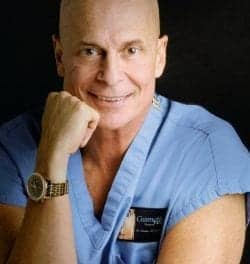
Jeffrey Frentzen
The American Society of Plastic Surgeons’ (ASPS) latest public education campaign, which was announced at the 2011 annual meeting in September, is on one level aimed at encouraging consumers to use reliable information sources in order to learn about procedures and surgeons prior to going under the knife.
The public relations effort is also aimed at reining in the many non-board-certified or not wholly qualified physicians performing cosmetic and plastic surgery.
On the surface, the new campaign is a response to a recent increase in media reports of death and disfigurement at the hands of practitioners. A specific news story, a September 13, 2011 USA Today article about three Florida women who recently lost their lives at the hands of ill-trained practitioners, is cited.
The noticeable increase in the number of plastic surgery deaths reported in the media has needed a rebuttal from the industry. In addition, it is true that OB/GYNs, dentists, and other so-called noncore physicians can enter the cosmetic surgery and rejuvenation fields without too much trouble. Non-board-certified physicians can easily claim to practice plastic surgery and that, contemporary wisdom suggests, highlights the need for more and better government oversight. The ASPS appears to accept the notion that governmental regulation of plastic surgeons is inevitable.
“Until state bodies have fully regulated who practices plastic surgery, and in what facilities, you can achieve your beauty goals as long as you do your homework,” says the ASPS. This begs the question: Which of the existing societies, board-certification bodies, and professional organizations are consumers to trust when it comes to proper patient safety practiced by qualified practitioners? According to the ASPS, the ASPS is the only society that can be trusted. Also mentioned is the American Board of Plastic Surgery.
What about societies and organizations that oversee non-ASPS but still highly qualified surgeons? Just because a surgeon is “board certified” does not guarantee a safe and successful outcome, but is the most basic and minimal criteria. The rest depends on training, skill, experience, judgment, talent, ethics, etc.
The ASPS PR campaign has also been taken up by the American Society of Aesthetic Plastic Surgeons (ASAPS), which is not surprising. However, ironically, the ASAPS is not included in the ASPS’ list of trustable boards or societies.
Other medical societies have rejected the ASPS’ premise; notably, the American Society of Ophthalmic Plastic and Reconstructive Surgery (ASOPRS). Critics are citing the ASPS’s implication that when physicians complete residencies in specialties other than plastic surgery they automatically lack the training necessary to competently perform cosmetic surgery.
In a rebuttal to the ASPS, the ASOPRS stated, “As highly skilled and trained surgeons in the field of aesthetic surgery, our society endorses the message that patients should be selective when choosing a cosmetic surgeon and be informed about that surgeon’s education, certifications, reputation and experience.”
The ASPS is to be commended for calling attention to practitioners that do procedures without necessary training. However, as much as I applaud the attention being paid to improving patient safety, the society’s attempts to delegitimize non-ASPS physicians and organizations is unfortunate.
Performance and quality standards are in place throughout the industry but are not all in agreement. One can merge most of them and construct standards that all societies, not just the ASPS, can agree to and follow.
In addition, there are too many similar organizations and societies in the aesthetic medicine space. Explaining the landscape of different-but-the-same governing bodies to even the most well-informed consumer can be an exercise in futility. But rather than attempt to orchestrate a move toward common goals among all societies, the ASPS now chooses to isolate itself amid a crush of noncore specialists who will continue to invade the cosmetic surgery field.
What of anesthesia during plastic surgery procedures? This thorny issue is brought up by the ASPS in response to the USA Today article, and then disposed of without comment. What of the role of anesthesia in some of these more highly publicized death cases? One can visualize plastic surgeons and cosmetic surgeons (including the noncore practitioners) standing on either side of a room trying not to notice the “anesthesia elephant” sitting in the middle.




